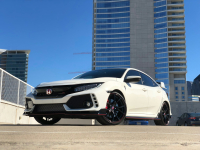The Weight Loss Medication Influence
The introduction of several injectable appetite suppressants in the US, with Rybelsus available in pill form, has reignited discussions about body image within the fashion sphere. With celebrities and influencers openly discussing their use of such medications for weight loss, the fashion world finds itself at a crossroads, balancing between embracing body positivity and succumbing to the allure of a size-zero ideal.
A Step Back in Representation
This year's runway shows starkly contrast the inclusive moments celebrated in recent years, such as Jill Kortleve and Paloma Elsesser breaking barriers at Fendi in 2020, Erdem expanding its size range in 2021, and Valentino's diverse haute couture showcase in 2022. However, the Fall-Winter 2023 season saw a significant decline in curve models, with Fendi and Valentino not responding to inquiries and Erdem declining to comment on their casting choices.
Despite the overall trend, a few brands continued to champion size diversity. Emerging designers in London and established labels like Christian Siriano and Coach in New York made notable efforts to include models of various sizes. Yet, the broader fashion industry's move away from inclusivity has prompted criticism from fashion commentators and diversity advocates alike, highlighting a need for a reevaluation of priorities.
The Future of Fashion Inclusivity
The noticeable decrease in plus-size model representation on the Fall-Winter 2023 runways raises important questions about the fashion industry's direction and its commitment to reflecting the diversity of its consumer base. As the debate around weight loss medications and their impact on societal beauty standards continues, the industry faces a pivotal moment to reaffirm its dedication to inclusivity. Moving forward, the hope is for a more diverse representation that truly reflects the variety of body types in the real world, ensuring that fashion remains a realm of beauty for all.






